Published
- 11 min read
Best AWS Amplify Alternatives in 2025 for Developers
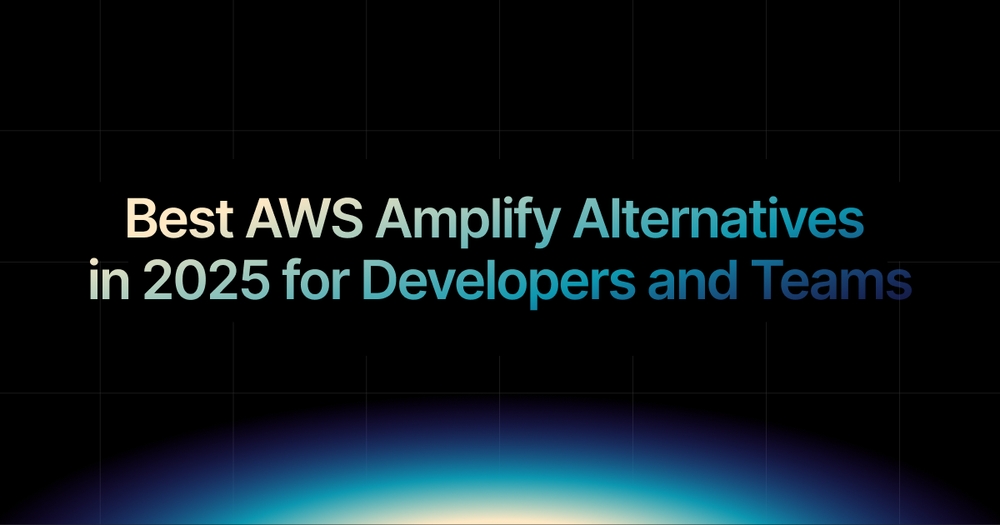
Introduction
AWS Amplify has become a go-to platform for developers building and deploying full-stack applications on AWS. It combines hosting, authentication, APIs, storage, and CI/CD pipelines into a single system, allowing rapid application delivery.
However, as projects grow, developers often encounter limitations such as complex configurations, unpredictable costs, and limited automation for scaling and monitoring. These challenges have led many teams to look for AWS Amplify alternatives that provide more flexibility, automation, and transparent pricing.
In this article, we explore the top AWS Amplify alternatives in 2025, including Kuberns, which delivers AWS-grade reliability with AI-powered deployment, built-in observability, and up to 40 percent lower infrastructure costs.
What to Look for in an AWS Amplify Alternative
When evaluating Amplify alternatives, focus on these areas:
- Ease of deployment: Platforms that offer simple, Git-based deployment workflows.
- Backend and full-stack support: Ability to host APIs, databases, and microservices.
- Automation and scalability: Automatic scaling and monitoring reduce manual work.
- Cost transparency: Predictable pricing avoids unexpected billing spikes.
- Performance and reliability: Ensure high uptime and global availability.
Kuberns addresses all these aspects with one-click deployments, AI-powered scaling, and a unified monitoring dashboard built on AWS infrastructure.
1. Kuberns: The Smart AWS Amplify Alternative
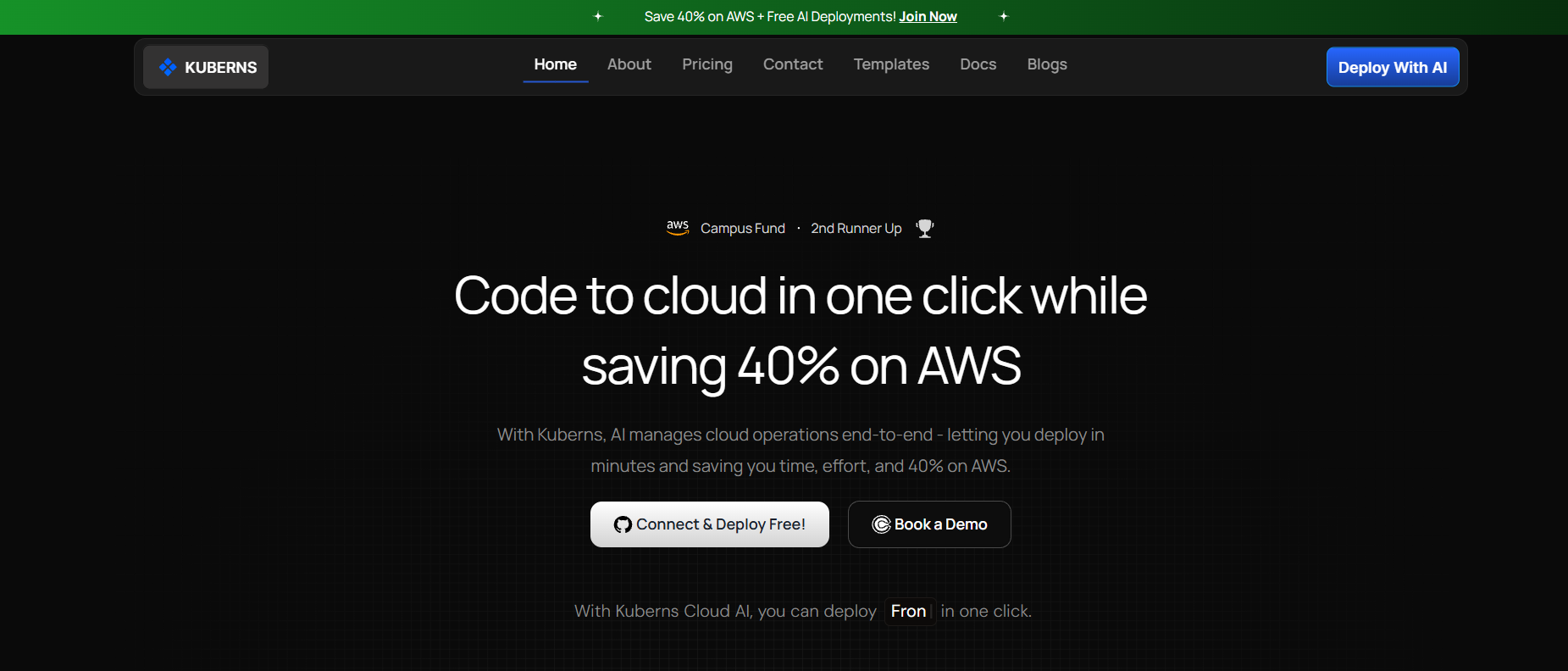 Kuberns is a next-generation, AI-powered deployment platform built for developers who want AWS performance without the DevOps overhead. It simplifies cloud operations by automating deployment, scaling, and cost optimization, while maintaining full-stack flexibility.
Kuberns is a next-generation, AI-powered deployment platform built for developers who want AWS performance without the DevOps overhead. It simplifies cloud operations by automating deployment, scaling, and cost optimization, while maintaining full-stack flexibility.
Key Highlights
- One-click Git deployment: Connect GitHub or GitLab and deploy instantly.
- AI-powered scaling: Automatically adjusts resources based on demand.
- Up to 40 percent AWS cost savings: Kuberns helps reduce cloud costs while maintaining reliability.
- Built-in observability: Live logs, metrics, and alerts in a single dashboard.
- Full-stack compatibility: Supports APIs, databases, containers, and microservices.
Kuberns enables teams to deploy faster, scale smarter, and save more. Learn more in What Is Kuberns: The Simplest Way to Build, Deploy, and Scale Full-Stack Apps and Cut AWS Bills by 40 Percent Without Compromising on Security or Features.
2. Render
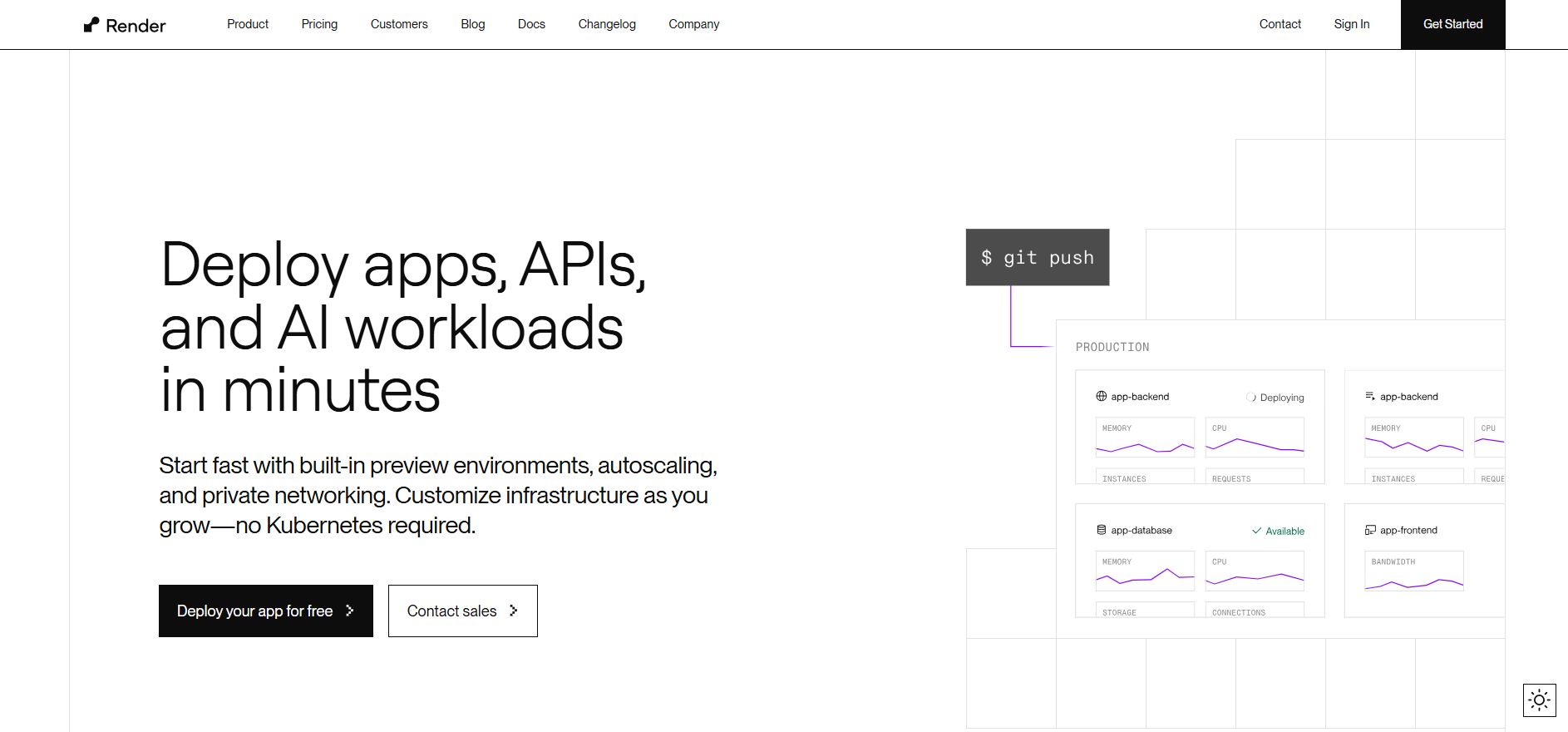 Render is an all-in-one platform that simplifies full-stack deployments. It supports web services, databases, background workers, and Docker containers, making it a versatile choice for developers looking for flexibility without managing infrastructure.
Render is an all-in-one platform that simplifies full-stack deployments. It supports web services, databases, background workers, and Docker containers, making it a versatile choice for developers looking for flexibility without managing infrastructure.
Strengths
- Git-based CI/CD pipelines for automatic deployment.
- Managed PostgreSQL databases and SSL support.
- Scales applications automatically based on usage.
Limitations
While Render is easy to use, its automation capabilities are limited compared to Kuberns, which provides deeper observability and AI-driven scaling.
For a complete breakdown, read Render vs Kuberns.
3. Netlify
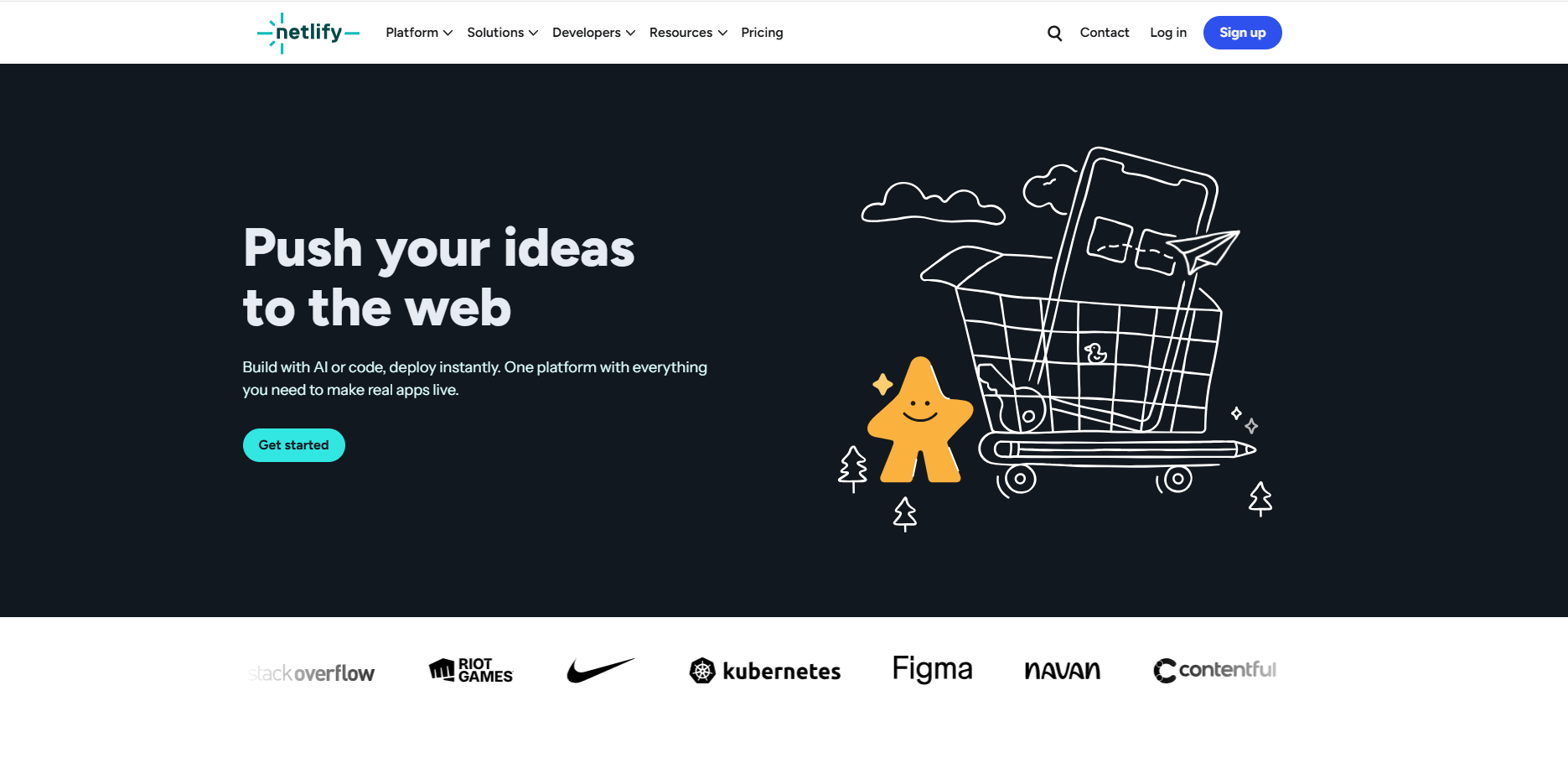 Netlify is widely used for deploying static sites and frontend applications. It offers serverless functions, edge delivery, and continuous deployment from Git.
Netlify is widely used for deploying static sites and frontend applications. It offers serverless functions, edge delivery, and continuous deployment from Git.
Strengths
- Great for static and JAMstack applications.
- Automated builds and deploy previews.
- Integrated CDN for global performance.
Limitations
Netlify lacks backend and full-stack support. It is best for frontend teams but not for developers running APIs or containers. For a more complete solution, Kuberns offers one-click full-stack deployments with backend automation.
Explore Best Netlify Alternatives for more insights.
4. Vercel
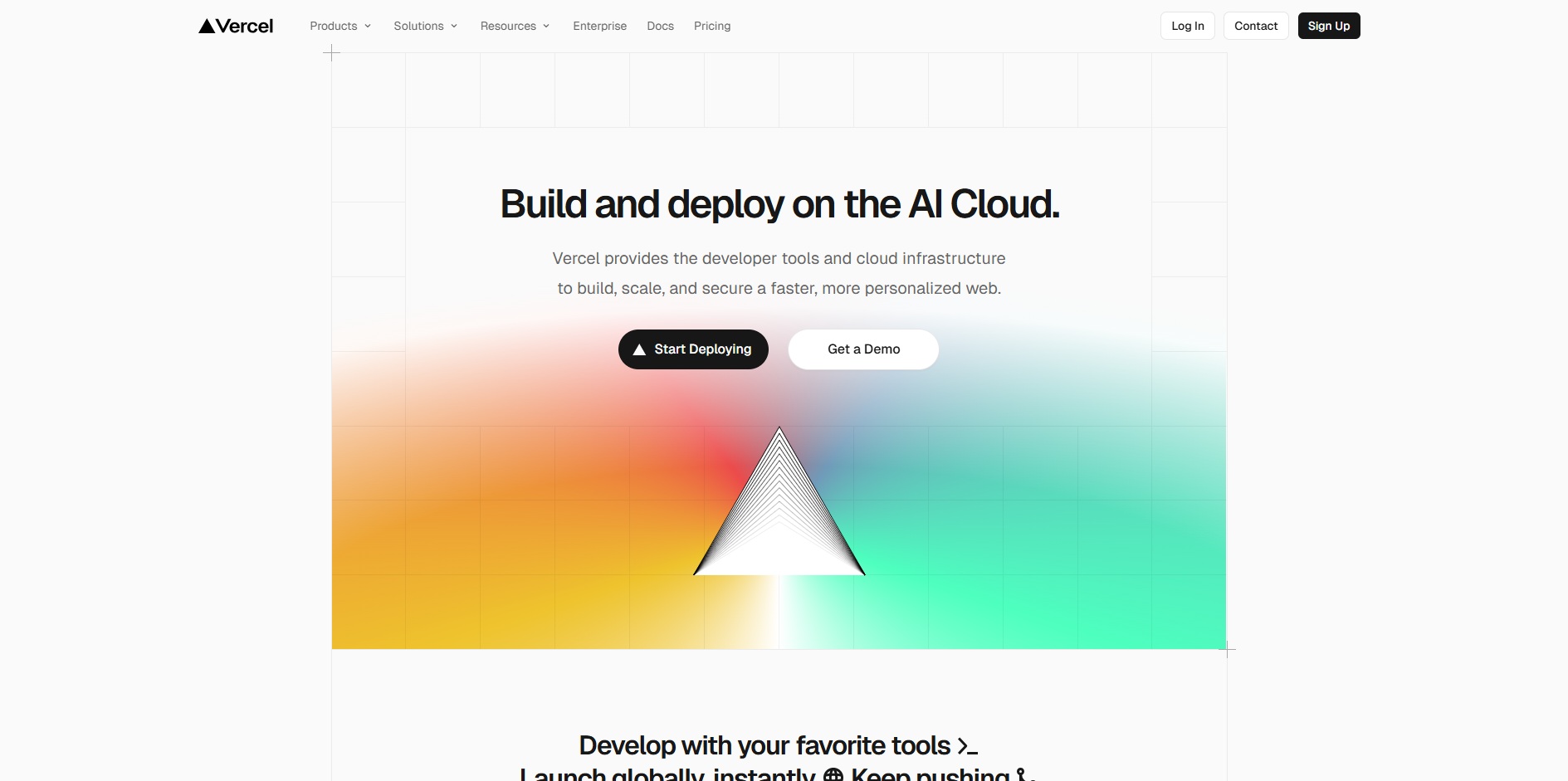 Vercel is a platform designed for frontend developers and teams using frameworks like Next.js and React. It provides serverless deployment, instant rollbacks, and global caching for fast web performance.
Vercel is a platform designed for frontend developers and teams using frameworks like Next.js and React. It provides serverless deployment, instant rollbacks, and global caching for fast web performance.
Strengths
- Excellent integration with frontend frameworks.
- Global CDN for fast response times.
- Real-time collaboration and deploy previews.
Limitations
Vercel is optimized for frontend hosting and lacks built-in backend or database support. In contrast, Kuberns supports backend services, APIs, and containerized workloads within the same platform.
Read the full comparison at Vercel vs Kuberns.
5. DigitalOcean App Platform
 DigitalOcean App Platform provides predictable pricing and an easy-to-use interface for full-stack deployments. It supports APIs, web apps, and Docker-based services with flat-rate pricing.
DigitalOcean App Platform provides predictable pricing and an easy-to-use interface for full-stack deployments. It supports APIs, web apps, and Docker-based services with flat-rate pricing.
Strengths
- Simple pricing structure with no hidden costs.
- Supports both static and dynamic workloads.
- Git-based deployment and managed databases.
Limitations
While beginner-friendly, it lacks the automation depth and monitoring features offered by Kuberns.
Read Best DigitalOcean Alternatives for Startups and Solo Developers for more details.
6. Azure App Services
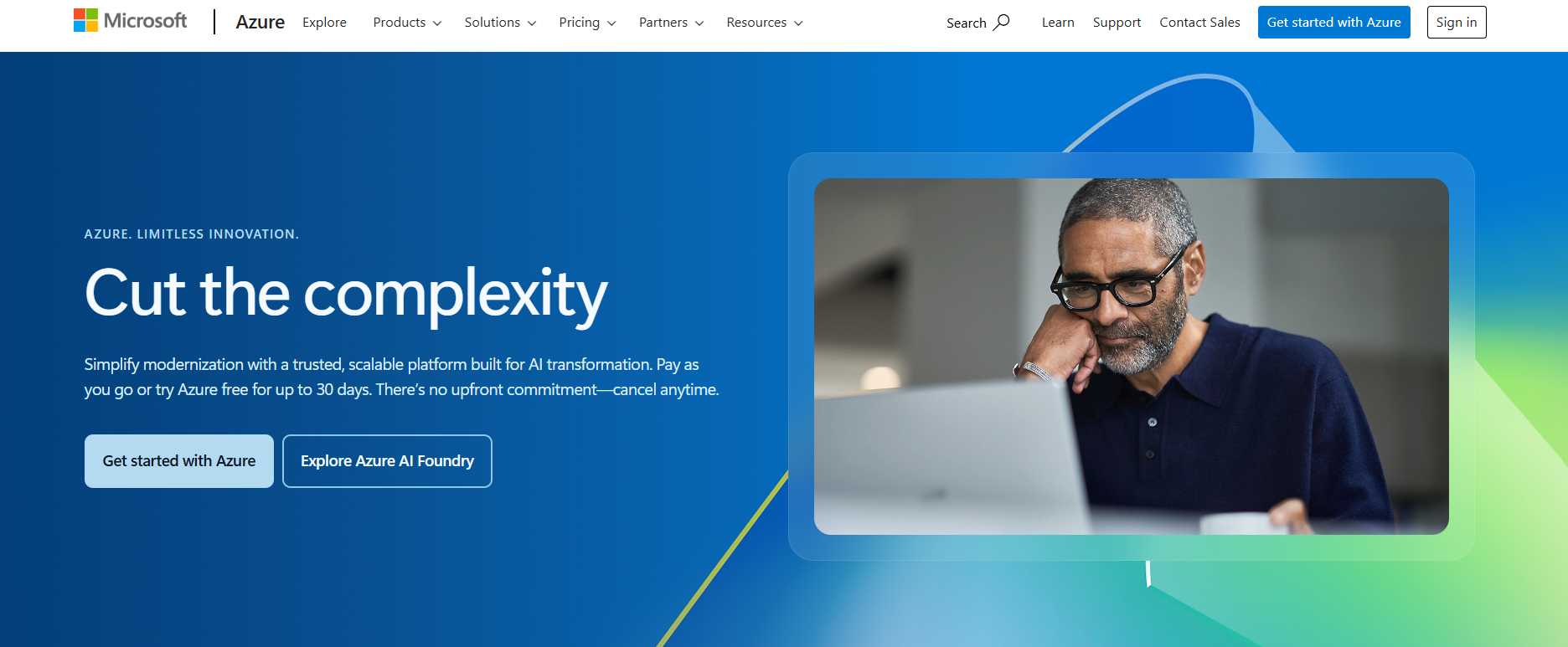 Azure App Services is Microsoft’s managed platform for hosting web applications and APIs. It provides integration with Visual Studio, GitHub Actions, and Azure DevOps, making it suitable for enterprise-grade deployments.
Azure App Services is Microsoft’s managed platform for hosting web applications and APIs. It provides integration with Visual Studio, GitHub Actions, and Azure DevOps, making it suitable for enterprise-grade deployments.
Strengths
- Excellent for enterprises already using Microsoft products.
- Built-in scaling and security compliance.
- Supports containerized workloads and hybrid cloud models.
Limitations
Azure App Services can be complex for smaller teams and has a steeper learning curve than Kuberns, which offers automation and faster setup with AWS-level reliability.
For an overview, check Azure Alternatives in 2025.
Comparison Table: Best AWS Amplify Alternatives
| Platform | Key Features | Best For | Limitations | Related Links |
|---|---|---|---|---|
| Kuberns | AI automation, one-click deployment, built-in monitoring, up to 40% AWS cost savings | Developers and enterprises needing AWS reliability and automation | Focused on automation over granular manual configuration | What Is Kuberns, Cut AWS Bills by 40% |
| Render | Full-stack hosting, PostgreSQL, background workers | Teams building APIs or web apps | Limited automation and scaling compared to Kuberns | Render vs Kuberns |
| Netlify | Static hosting, edge delivery, CI/CD | Frontend or JAMstack projects | No backend or API hosting | Best Netlify Alternatives |
| Vercel | Frontend hosting, global caching, framework integration | Frontend teams using Next.js or React | No built-in backend or database support | Vercel vs Kuberns |
| DigitalOcean App Platform | Full-stack hosting, predictable pricing | Startups and small teams | Limited observability and scaling automation | Best DigitalOcean Alternatives |
| Azure App Services | Enterprise hosting, CI/CD integration, hybrid cloud | Enterprises in Microsoft ecosystem | Complex setup for smaller teams | Azure Alternatives |
Why Kuberns Is the Right Choice
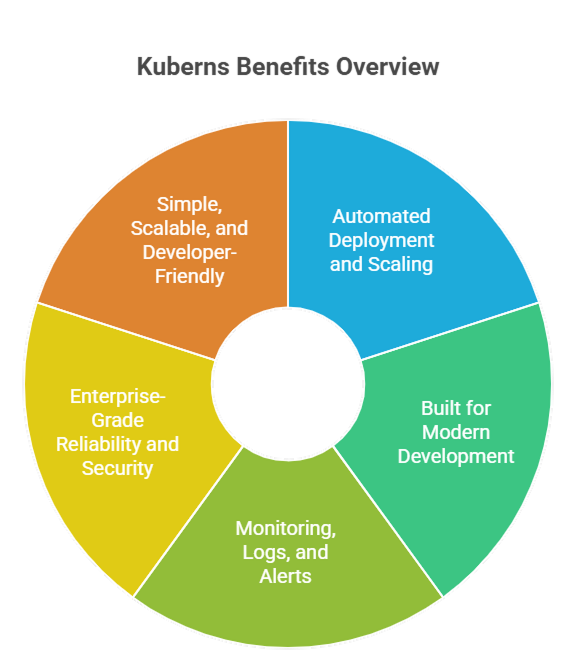 Kuberns bridges the gap between simplicity and scalability. It delivers the reliability of AWS while eliminating manual DevOps tasks.
Kuberns bridges the gap between simplicity and scalability. It delivers the reliability of AWS while eliminating manual DevOps tasks.
With one-click deployment, AI-powered scaling, and built-in monitoring, Kuberns lets teams focus on development instead of infrastructure management. Its helps to save up to 40 percent savings on AWS infrastructure costs, making it both efficient and affordable.
In short, Kuberns gives developers everything they need from automatic scaling to real-time observability without the complexity of managing servers.
Final Thoughts
AWS Amplify is an excellent platform for teams deeply invested in AWS, but its growing complexity and limited automation make it less ideal for fast-moving development teams.
If you want AWS-grade performance with simplicity, automation, and cost efficiency, Kuberns is the ideal alternative. It combines the power of AWS with an easy-to-use platform that helps developers deploy, scale, and monitor applications effortlessly.
If you want to deploy faster, scale smarter, and reduce your cloud costs, it is time to make the switch. 👉 Get started with Kuberns today and experience a simpler, smarter way to build, deploy, and scale applications.

Frequently Asked Questions (FAQ)
What is AWS Amplify used for?
AWS Amplify is a cloud-based development platform that helps developers build, deploy, and host web and mobile applications. It provides tools for authentication, APIs, storage, and CI/CD, making it easier to manage full-stack projects on AWS.
Why do developers look for AWS Amplify alternatives?
Developers often look for AWS Amplify alternatives due to its complex configurations, hidden costs, and limited automation for scaling and monitoring. Alternatives like Kuberns offer more flexibility, transparency, and AI-powered deployment.
What is the best alternative to AWS Amplify in 2025?
Kuberns is one of the best AWS Amplify alternatives in 2025. It automates deployment, scaling, and cost optimization, giving developers AWS-grade reliability with up to 40 percent savings and zero DevOps complexity.
How does Kuberns compare to AWS Amplify?
Kuberns provides the same reliability as AWS because it runs on AWS infrastructure, but it automates scaling, monitoring, and optimization. This helps teams deploy faster and reduce infrastructure costs without manual configuration.
Is AWS Amplify good for full-stack applications?
Yes, AWS Amplify supports full-stack applications, but it can be harder to manage at scale. Platforms like Kuberns simplify full-stack deployments with one-click Git integration, built-in monitoring, and automated scaling.
What are the main drawbacks of AWS Amplify?
The main drawbacks of AWS Amplify include complex setup, lack of automation, and unpredictable pricing as applications scale. Many teams prefer platforms with transparent costs and integrated observability.
Which AWS Amplify alternative supports both frontend and backend apps?
Kuberns, Render, and DigitalOcean App Platform support both frontend and backend applications. Kuberns stands out for its AI-driven scaling and built-in monitoring that streamline operations end-to-end.
Does Kuberns work with AWS infrastructure?
Yes. Kuberns runs entirely on AWS infrastructure, combining the reliability and scalability of AWS with an automated layer that manages deployment, monitoring, and cost optimization.
Can startups and small teams use Kuberns instead of AWS Amplify?
Absolutely. Kuberns is built for startups, freelancers, and enterprises alike. It removes DevOps complexity, supports one-click deployments, and helps teams save up to 40 percent on AWS infrastructure costs.
How do I migrate from AWS Amplify to Kuberns?
Migrating from Amplify to Kuberns is simple. Connect your GitHub or GitLab repository, configure your environment, and deploy in one click. The platform automatically handles provisioning, scaling, and monitoring.